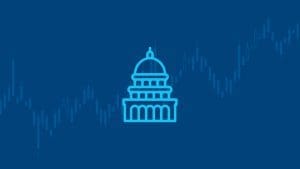By the time news reports announced Justin Trudeau’s impending resignation, prediction markets gave him an 80% chance of resigning by April 2025.
Kalshi gave Trudeau an 83% chance of stepping down the morning before he stepped down as prime minister and the Liberal Party leader. Polymarket gave him an 82% chance. One of the lowest chances came from Manifold, which gave Trudeau a 78% chance before reports of his decision to step down.
Both a resignation and an announcement of a resignation would settle the markets to “yes.” So, even though elections to replace Trudeau as the Liberal Party leader aren’t until March 26, prediction market traders who thought Trudeau would be “out” by April 1 get their payouts.
Prediction markets tracked Trudeau’s last ebb and flow
Kalshi and Polymarket launched their markets on Trudeau’s resignation date in mid-December. On Dec. 20, Trudeau experienced one of the greatest blows to his tenure to date. The leader of the New Democrat Party announced he would bring a no-confidence vote against Trudeau. The New York Times also published a long article about Trudeau’s political struggles on Dec. 21.
Kalshi’s odds of Trudeau’s resignation by April 1 rose from 68% on Dec. 19 to 87% on Dec. 23. Also on Dec. 23, Trudeau announced that he would make no decision about his political future over the holidays. His odds fell from 87% to 61% on Dec. 27. Then reporting continued speculating about his political fall, and Trudeau’s odds crept back up to the low 80s over the next week.
Prediction markets came to Trudeau’s downfall in its late stage. Trudeau’s political struggles were showing in election results as early as 2019 and 2021. Polls among Canadians also reflected growing dissatisfaction with Trudeau and the Labor Party.
Some prediction markets make calls before mainstream media, as Kalshi did with the U.S. presidential election. Trudeau’s market moved at the pace of mainstream news coverage, reflecting the news instead of anticipating it.


























